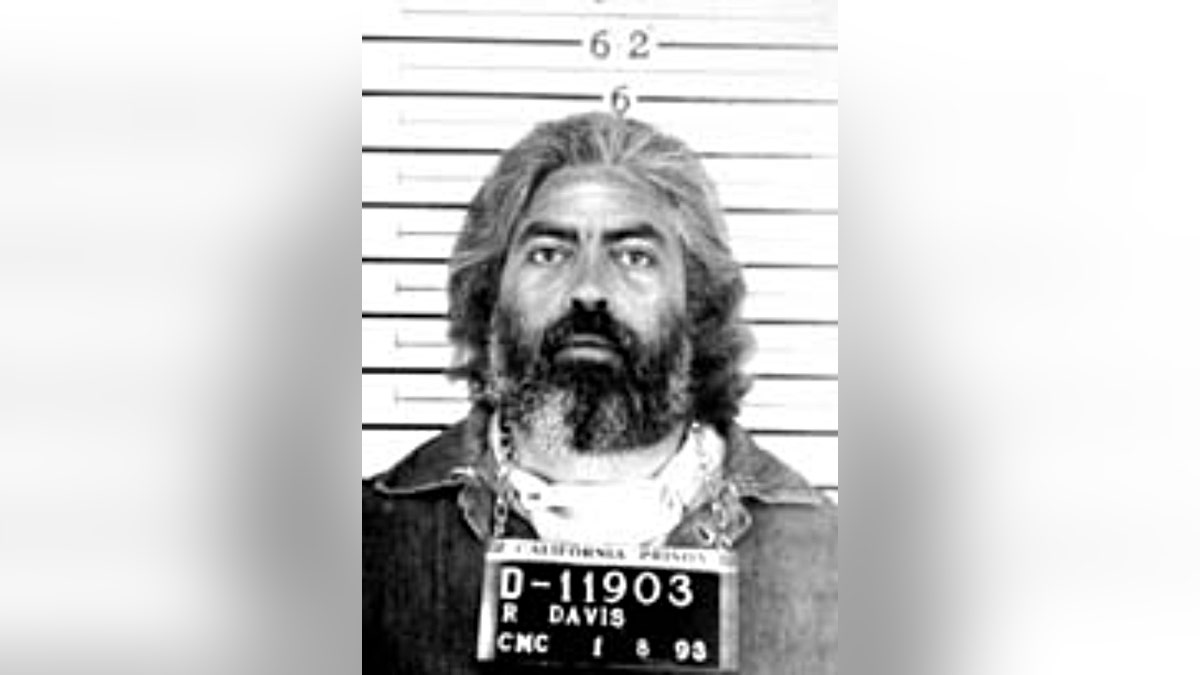California convict in Polly Klaas’ murder seeks death sentence recall as girl’s family warns of slippery slope
The man convicted in Polly Klaas’ 1993 kidnapping from a sleepover and subsequent murder is asking the California Superior Court to overturn his death sentence.
Richard Allen Davis, who is locked up at San Quentin State Prison, was sentenced to death for abducting 12-year-old Polly — now known as the first missing girl on the internet — from a sleepover at knifepoint and then strangling her to death.
“On Aug. 5, 1996, Richard Allen Davis was sentenced to death for kidnapping and murdering my 12-year-old daughter Polly Klaas, with the intent to commit lewd acts upon her,” Polly’s father, Marc Klaas, said in an April 4 statement. “At 10:30 p.m. on Oct. 1, 1993, Davis invaded a slumber party at the home Polly shared with her mother in Petaluma, California, where he bound, tied, and blindfolded Polly’s two friends before kidnapping her at knifepoint.”
Two months later, Klaas’ family learned that Davis “murdered Polly and discarded her body on top of a trash pile within hours of abducting her.”
POLLY KLAAS’ FATHER CALLS GOV. NEWSOM ‘A PIG’ FOR DEATH PENALTY MORATORIUM
Davis is seeking a recall of his death sentence under California Gov. Gavin Newsom’s 2019 decision to halt the death penalty across the state. Under Newsom’s moratorium, no one in California can be executed while he is in the governor’s office.
“We had every expectation that the sentence of death recommended by the jury and imposed by Judge Thomas Hastings would keep him segregated from society for the rest of his life. We could not have been more wrong!” Marc continued. “The Sonoma County District Attorney’s opposition to recall of Davis’s capital sentence… is correct that a recall of a capital sentence is not authorized under the section, and the court should deny his motion on April 5, 2024.”
THE CHILD ABDUCTION AND MURDER THAT CHANGED AMERICAN JUSTICE

On April 5, Superior Court Judge Benjamin Williams set a May 31 date to rule on Davis’ motion to recall his sentence.
“If my family can be subjected to the possible recall of capital sentence of a condemned murderer who, prior to murdering Polly, had multiple convictions for violence towards women and was diagnosed as a sexually sadistic psychopath, then any victim’s family who thought that justice was served in the courtroom is in for a shocking new reality,” Marc said in his statement. “If Polly’s killer is somehow able to prevail, this is the tip of the iceberg.”
THE SLUMBER PARTY NIGHTMARE: THE KIDNAPPING & MURDER OF POLLY KLAAS

He added that “[t]housands of violent offenders will follow suit, so lock your doors, protect your children, and pray that your family does not fall prey to the violence and destruction that is sure to follow.”
Newsom’s office previously directed Fox News Digital to comments the governor made when he issued the moratorium in March 2019, when 737 people were on death row in California.
FATHER OF MURDER VICTIM SLAMS CA GOV. NEWSOM FOR GIVING CRIMINALS ‘REPRIEVE’
“The intentional killing of another person is wrong and, as governor, I will not oversee the execution of any individual,” Newsom said in a statement at the time. “Our death penalty system has been, by all measures, a failure.

“It has discriminated against defendants who are mentally ill, black and brown or can’t afford expensive legal representation. It has provided no public safety benefit or value as a deterrent. It has wasted billions of taxpayer dollars. Most of all, the death penalty is absolute. It’s irreversible and irreparable in the event of human error.”
CLICK TO GET THE FOX NEWS APP
A press release from Newsom’s office noted that California is one of four states that have issued moratoriums on the death penalty, including Pennsylvania, Colorado and Oregon. Since 1978, California has spent $5 billion on the death penalty system and executed a total of 13 people, according to the release.
Polly’s disappearance, which made headlines across the country in newspapers and on television, also became known as the first high-profile missing persons case to circulate on the internet in 1993, when computers were just taking off.
Read the full article Here


